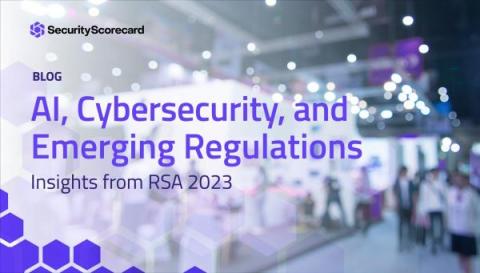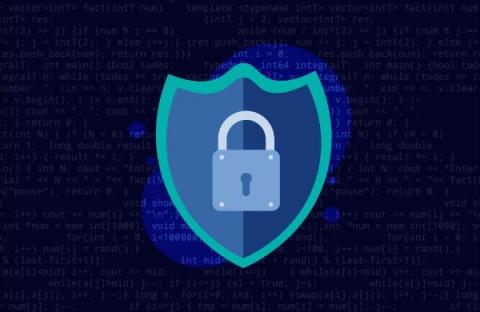Security | Threat Detection | Cyberattacks | DevSecOps | Compliance
Legislation
AI, Cybersecurity, and Emerging Regulations
The SecurityScorecard team has just returned from an exciting week in San Francisco at RSA Conference 2023. This year’s theme, “Stronger Together,” was meant to encourage collaboration and remind attendees that when it comes to cybersecurity, no one goes it alone. Building on each other’s diverse knowledge and skills is what creates breakthroughs.
The CPRA compliance checklist every business should follow in 2023
The content of this post is solely the responsibility of the author. AT&T does not adopt or endorse any of the views, positions, or information provided by the author in this article. The California Privacy Rights Act (CPRA) was passed in November 2020. It amends the 2018 California Consumer Privacy Act (CCPA) introduced in response to rising consumer data privacy concerns.
Boosting the Cyber Resilience of our Nation's Institutions
The White House’s ambitious national cyber strategy— which represents a shift away from decades-old voluntary compliance guidelines to a more aggressive regulatory approach of critical infrastructure firms—couldn’t come at a better time. A recent study found that local governments were the organizations least capable of disrupting ransomware attacks, and that they were also among the ransomware victims to pay ransoms most frequently (43% paid a ransom after an incident).
Finding Data Subject to GDPR
The New UK Telecommunications Security Act: What It Means For You
Back in November 2020, the UK Telecommunications (Security) Act started its journey through the Houses of Parliament, and after many readings and much consultation it finally went live almost two years later on the 1st October 2022. At the heart of the Act was a desire to improve the security posture of the UK’s telecoms networks, infrastructure, and organisations, recognising the importance of telecommunications as part of the UK’s critical national infrastructure (CNI).
10 Steps to Pain-Free GDPR Compliance
New National Cybersecurity Strategy Will Require Compliance, Collaboration
The Biden administration’s recently released National Cybersecurity Strategy goes beyond the executive order it issued in 2021, which defined security measures any organization doing business with the federal government must follow.
Why the Need for Application Security Intensifies as EU Tightens Cybersecurity Requirements
Two new sets of regulations introduced by the European Union (EU) indicate that the public sector is taking increased interest in improving cybersecurity and resilience. The EU is introducing the Digital Operational Resilience Act (DORA) for financial institutions and the Cyber Resilience Act (CRA) for software and hardware providers, both designed to enforce software security and secure delivery of services.
Shielding Critical Infrastructure: Conquering Ransomware with Keeper Security Government Cloud
The Biden Administration’s 35-page National Cybersecurity Strategy released in March 2023 emphasizes the growing importance of cybersecurity for both private companies and federal agencies. The strategy specifically highlights ransomware as a significant concern, particularly in terms of its impact on private companies that collaborate with the federal government or are critical to national security.











